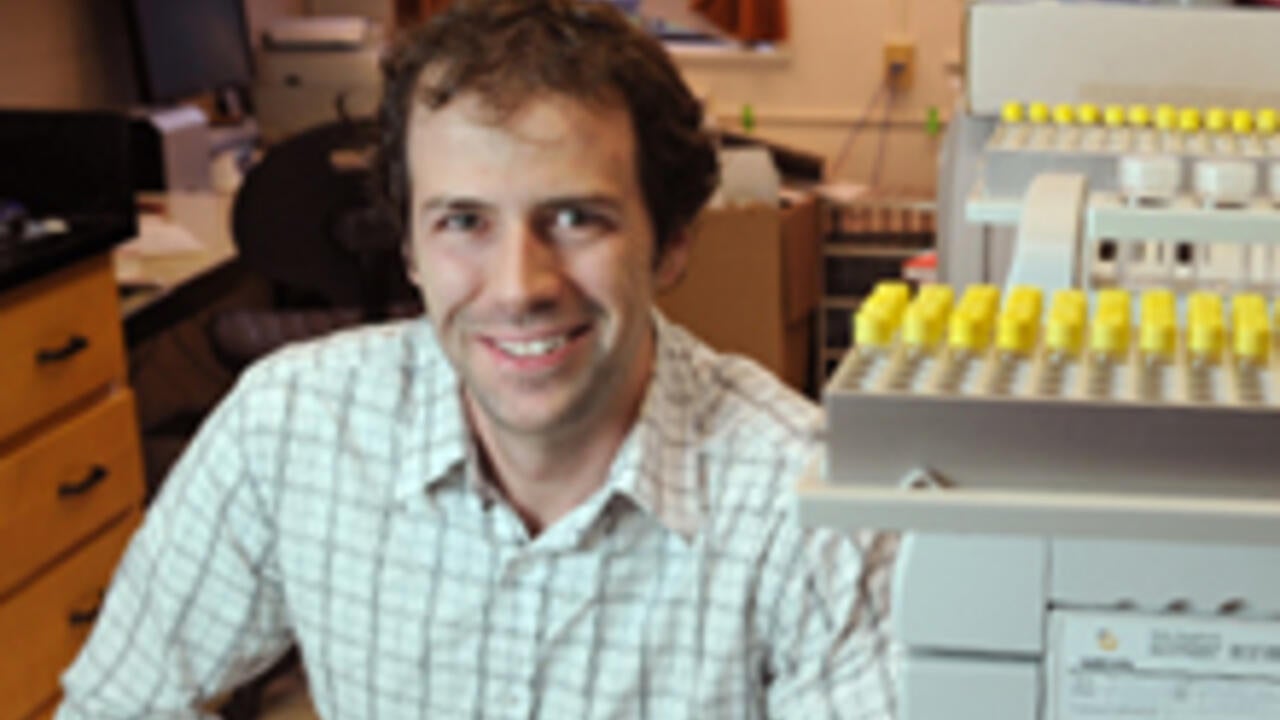
Waterloo innovation saves labs time and money
Kinesiology researcher invents new technology to measure fatty acids and cholesterol. Tool is already being used in Canada and Argentina

Kinesiology researcher invents new technology to measure fatty acids and cholesterol. Tool is already being used in Canada and Argentina
By Christine Bezruki Faculty of Applied Health SciencesCompanies can now say goodbye to tedious food testing processes, thanks to a new innovation from kinesiology postdoctoral fellow Adam Metherel.
 Working with Certo Labs Inc., a Toronto-based biotechnology company, Metherel developed a tool for quickly measuring fatty acids and cholesterol content in food and tissue samples. The new tool essentially combines two steps into one, allowing food manufacturers to gather the information necessary for food labels in a fraction of the time.
Working with Certo Labs Inc., a Toronto-based biotechnology company, Metherel developed a tool for quickly measuring fatty acids and cholesterol content in food and tissue samples. The new tool essentially combines two steps into one, allowing food manufacturers to gather the information necessary for food labels in a fraction of the time.
“Companies need to know the amount of omega-3 or trans fats in their products in order to meet food labelling requirements in Canada. This will provide them with a way of performing analysis more quickly, saving time, but also money,” said Metherel.
Simple concept, big savings
Traditionally, the process for measuring fatty acids involved manually pipetting the samples before running them through a centrifuge to separate the contents. Metherel’s tool removes the pipetting and centrifuge processes altogether.
Designed around a relatively simple concept, the new tool uses a special filter attached to a syringe to filter fatty acids. Fatty acids and cholesterol selectively pass through the filter, while other contents do not.
The syringe saves researchers and analysts approximately a minute to minute and a half per sample.
“In the eight years since Health Canada made it a requirement to list trans fat content on nutrition labels, there has been a growing interest in speeding the process of fatty acid determination,” said Metherel, who is working under the supervision of kinesiology professor Ken Stark.
“With this product, we’re speeding up a necessary activity, enabling food manufacturers to save time and money without compromising accuracy.”
Commercialized by Certo labs, the tool is already being used in industrial labs across Canada and in Argentina. Academic researchers are also using the tool to measure the fatty acid content in animal tissue or diets.
In early November, the innovation won Metherel the prestigious Mitacs and National Research Council-Industrial Research Assistance Program Award for Commercialization. The award recognizes an outstanding idea that has been commercialized.
“I am extremely honoured and humbled to have received this award among the many other deserving individuals and excellent research projects within the Mitacs program,” said Metherel.

Read more
Here are the people and events behind some of this year’s most compelling Waterloo stories

Read more
The Government of Canada announces funding for discovery and applied research in engineering, natural sciences, health and social sciences

Read more
Meet the 13 exceptional students representing Waterloo’s newest grads
The University of Waterloo acknowledges that much of our work takes place on the traditional territory of the Neutral, Anishinaabeg, and Haudenosaunee peoples. Our main campus is situated on the Haldimand Tract, the land granted to the Six Nations that includes six miles on each side of the Grand River. Our active work toward reconciliation takes place across our campuses through research, learning, teaching, and community building, and is co-ordinated within the Office of Indigenous Relations.